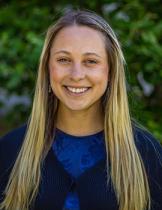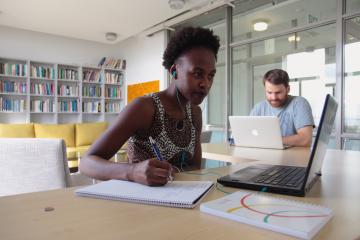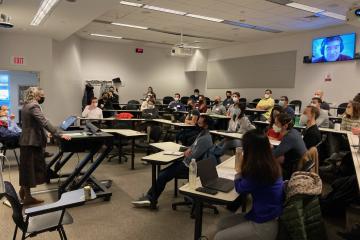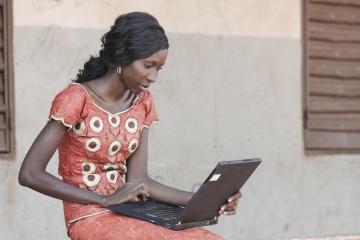
Five years and counting: The DEDP MicroMasters program trains future leaders in the fight against global poverty
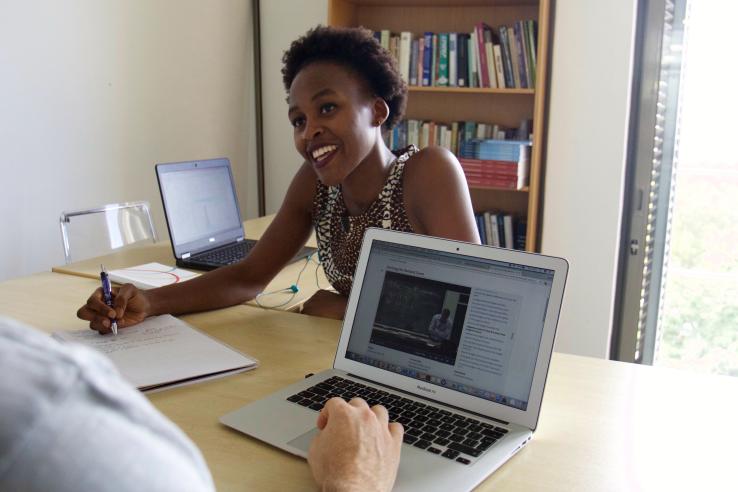
Summer 2022 marks the five-year anniversary of the Data, Economics, and Development Policy (DEDP) MicroMasters® program. The past five years have been a remarkable journey indeed!
Jointly led by J-PAL and MITx, the program has welcomed more than 50,000 learners from 214 countries and territories, and amassed nearly half a million enrollments overall. The program has awarded over 8,000 course certificates and equipped more than 800 learners with the DEDP MicroMasters credential.
Over the five years, the program also expanded to a suite of seven (soon to be eight!) rigorous courses that cover microeconomics, randomized evaluations, data analysis, political economy, and economic development. More than just impressive statistics, these numbers contribute to the flourishing movement toward use of data and evidence to inform poverty alleviation policies.
We take this opportunity to reflect on our journey thus far: our achievements, challenges, and aspirations for the next five years and beyond.
What is the DEDP MicroMasters program?
The DEDP MicroMasters program, together with its companion program, the residential DEDP master’s program, aims to equip exceptional individuals with the tools to tackle poverty alleviation using evidence-based approaches.
The program, which currently offers seven online courses, is unique in its focus on designing and running randomized evaluations to assess the effectiveness of social programs and its emphasis on hands-on skills in data analysis. The methodologies for alleviating global poverty covered in these courses are taught by MIT professors conducting path-breaking research, including Esther Duflo and Abhijit Banerjee, winners of the 2019 Nobel Prize in Economic Sciences and pioneers in the field of development economics.
The courses, which are based on courses taught at MIT, are rigorous, accessible, and affordable. Available to anyone with an internet connection, the courses are free to audit. Learners who wish to earn a course certificate can pay to take a proctored exam, the fee for which varies based on their ability to pay.
Learners who complete three core courses and two electives earn their DEDP MicroMasters credential. Because learners can take the courses at their own pace, some learners earn their credential within one semester, while others take several years. Credential holders are eligible to apply to the residential master’s program in DEDP or to receive academic credit at one of the institutions in our network of pathway universities.
Major achievements
The diversity of DEDP MicroMasters learners
The raison d'être of the DEDP MicroMasters program is to build a cadre of exceptional individuals with the theoretical knowledge and practical skills to tackle the most pressing challenges in poverty alleviation. As we build this group, we are intentional in strengthening its diversity. We firmly believe that a body of learners which better reflects the demographics of the world at large will be better poised to implement change for good worldwide.
As we stand at this five-year mark, we have seen close to half a million enrollments in our courses, and over 50,000 learners have enrolled in the DEDP MicroMasters program. Who are these learners, and how are we measuring up to our aspirations for diversity?
Our learners come from 214 countries and territories, with more than 62% coming from low to middle income countries and 92% receiving some form of financial assistance.
In regard to gender, approximately 33% of our learners are women. We recognize that there is still work to do, but we are nonetheless proud of this figure given even larger gender gaps in the field of economics overall. In fact, our program seems to beat the odds, with women making up about 25% of all credential holders.
With respect to education, 85% of our learners have at least an undergraduate degree, 43% of whom also have a master’s degree. Because there are no prerequisites required to enroll in the MicroMasters program, about 13% of our learners are able to engage with the material even without a college degree.

As a case in point, in our most recent admissions cycle to the residential DEDP master’s program, we heard from a learner, Abiel Abdonel Devilme, who had an extraordinary journey through the DEDP MicroMasters program. Abdonel, who was working full-time in Haiti while taking MicroMasters courses, was in the midst of taking courses when the country plunged into a fuel crisis. With major disruptions in internet connectivity, he was limited to watching MicroMasters lectures late at night, often taking twice as long as typical to download and watch the videos. But he persisted and ultimately earned his credential! He will be joining us for our fourth cohort of the DEDP master’s program.
Stories like Abdonel’s motivate us to do what we can to reach underrepresented learners around the world with unparalleled drive and passion, and we hope to replicate these types of stories many times over.
We believe that a few key strategies and principles have helped get us where we are today.
First, our tiered pricing structure allows learners to pay based on their ability to pay. We supplement this strategy with fundraising for scholarships for our high-performing learners who are not able to pay even the lowest price.
Secondly, we have increased the accessibility of our testing. In 2019, we shifted to proctored online exams, allowing learners to take the exams from their homes, rather than traveling often great distances to in-person testing centers as they did in years prior.
And last but certainly not least, true to the spirit of the program, we leverage learner data to explore where we can do more to promote diversity and to level the playing field. Following the lead of the organizations of which we are a part, MIT and J-PAL—both of which place diversity, equity, and inclusion as a priority—we resolve to push ourselves to do even more. We touch on this later on in this blog post.
Impact on MicroMasters learners
Aside from focusing on our long-term vision of developing a diverse and exceptional cadre of professionals who can tackle poverty alleviation with evidence-based approaches, we are also keeping an eye on the short-term impacts that our courses have had on learners’ educational and professional aspirations. The results thus far have been promising.
With respect to career, more than 77% of DEDP MicroMasters certificate holders report that the program has helped advance their career, with 81% reporting that they have applied what they have learned from the program to their work, and 66% sharing that they have integrated the use of rigorous evidence in decision-making at their organizations.
In regard to educational pursuits, 91% of certificate holders say the program has helped advance their education. In fact, since receiving their certificates, more than 42% of our learners have either received a raise, earned a promotion, or have pursued further education.
Hear from the DEDP MicroMasters credential holders themselves at our 2022 MITx MicroMasters Joint Celebration during which we celebrated all MicroMasters learners who earned their credential in the past year (the DEDP MicroMasters program starts at 10:53).
Impact on the DEDP master’s program
As we had hoped when we set the vision for the DEDP MicroMasters and master’s programs, the MicroMasters program continues to provide a robust and diverse pipeline of competitive candidates for the DEDP master’s program. To date, the DEDP master’s program has welcomed remarkably diverse cohorts of students.
While only in our third year of the master’s program, alumni and current students represent 32 home countries. Their sectoral interests are broad and include education, environmental and energy policy, social protection and financial inclusion, evaluating taxation and fiscal policies, and public health and global pandemic response.
While most of our master’s students have completed a bachelor’s degree along with their MicroMasters credential, we have admitted a number of students without college, or even high school, degrees. Importantly, these students are doing exceptionally well when they arrive on campus. The faculty describe them as a joy to have in class—they have an unmatched energy and drive, and their academic performance has actually exceeded that of their non-DEDP classmates on average.
Upon graduating, many graduates of the program have gone on to work in the field of development economics—for their home governments, NGOs, evidence-oriented organizations like Innovation for Poverty Action, and the World Bank, for example. Several have been admitted to PhD programs, including but not limited to Harvard, MIT, and the University of Michigan.
Read about the journeys from the DEDP MicroMasters to master’s program by two of our graduates, Lovemore Mawere from Zimbabwe and Chuka Ezeoguines from Nigeria.
A new model for higher education
An additional benefit of jointly running the DEDP MicroMasters program and the master’s program over the past five years was that it allowed us to test (and to see the promise of!) a new model for higher education.
The unique admissions process, with only MicroMasters credential holders being eligible to apply to the master’s program, has been critical in successfully identifying students who have untraditional profiles yet perform exceptionally well at MIT. Unlike one-off standardized tests, the full-length MIT-level courses have served as a strong signal of not only technical ability, but also motivation. Passing demanding online courses requires self discipline and direction, as students must grapple with course material without the benefits and structure of in-person courses.
In addition to providing a good signal, this admissions model has helped to remove a few barriers, such as prior university degrees, or GRE or other standardized tests, that are harder to overcome by underrepresented groups.
Of course, there are still some barriers to a fully level playing field. Not everyone will have equal time and resources to prepare for the online courses, and internet connectivity, access to computers, and access to external resources like tutors still varies across settings (though this is rapidly improving in low-income countries). Nevertheless, assessing applicants based on performance in a consistent package of rigorous online courses has shown to be a step in the right direction for a more equitable admissions process.
Looking ahead
As we reflect on the past five years, we have much to celebrate in terms of making progress towards our goal of contributing to the movement of greater use of data and evidence to inform poverty alleviation policies. But there is still much to be done. Looking forward to the next five years and beyond, we will continue to expand the DEDP MicroMasters program along a number of dimensions, from enhancing visibility of and access to the program for underrepresented learners, to building out partnerships with other institutions, to broadening the curriculum. We highlight a few of our plans in the second post in this series here.
Interested in joining the movement? The fall term of the DEDP MicroMasters program begins September 6. Enroll today! The next application cycle for the residential DEDP master’s program opens in December 2022.
Interested in providing scholarships to DEDP MicroMasters learners or master’s students? Contact senior manager Thanh Nguyen.
This is the first post in a two-part series—read the next post.

